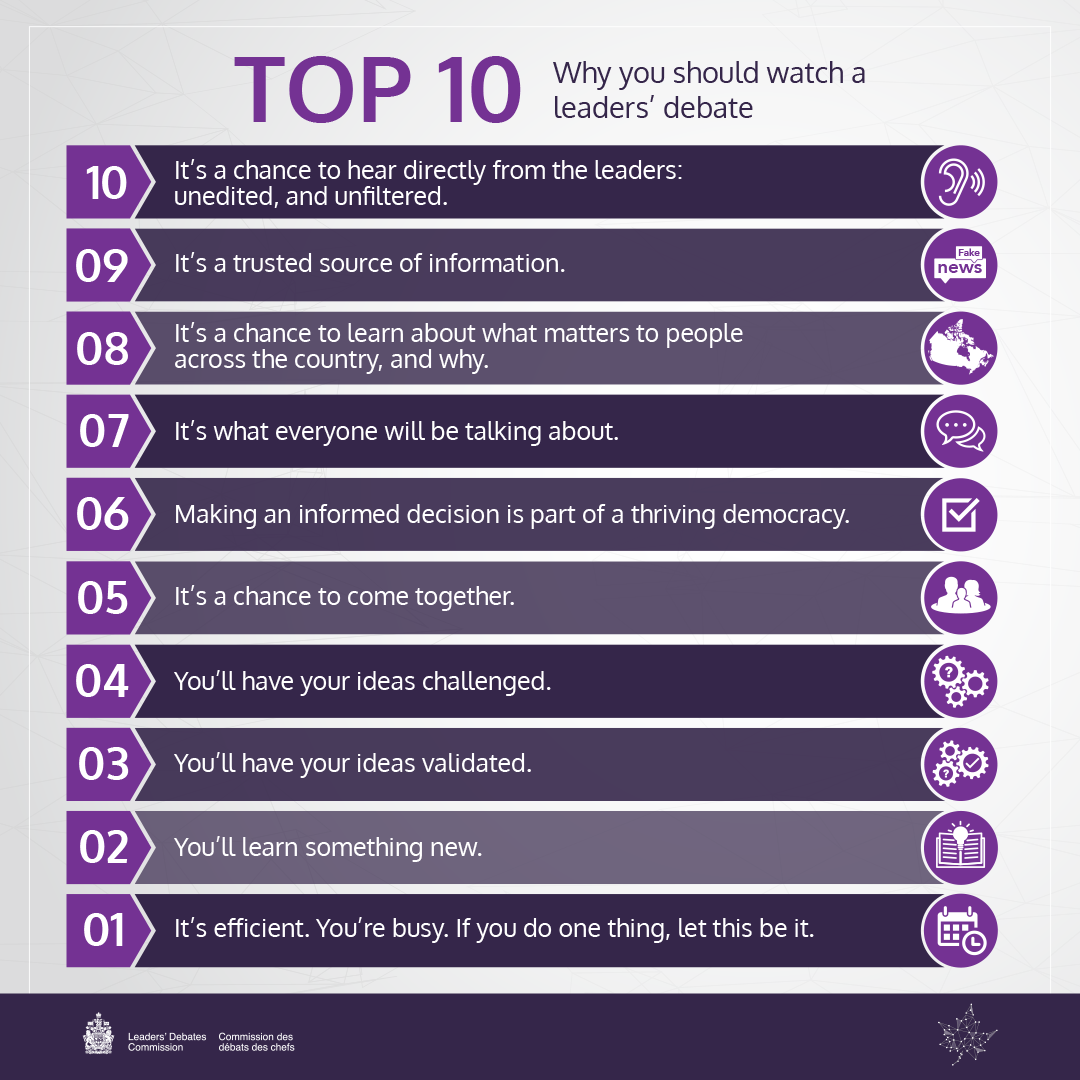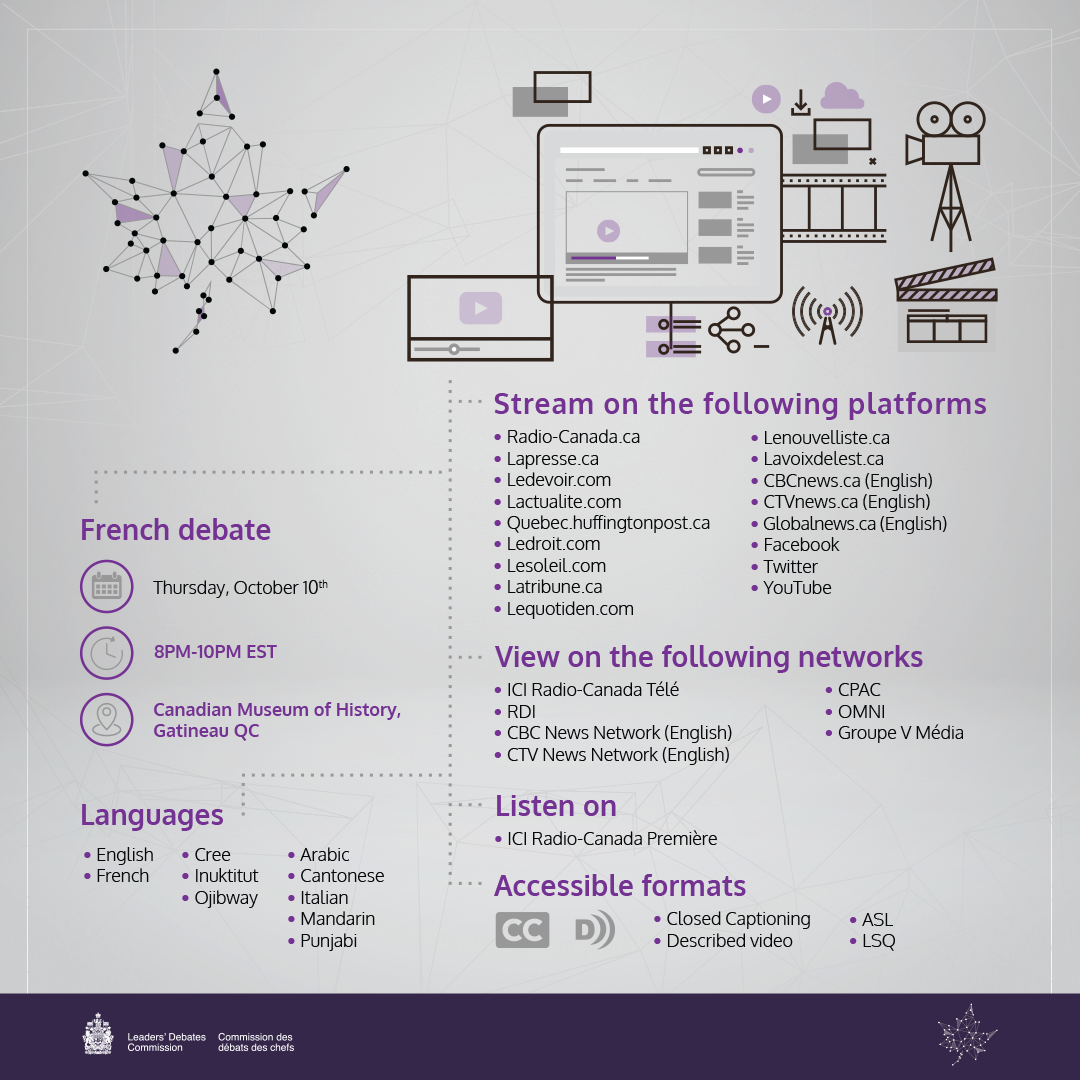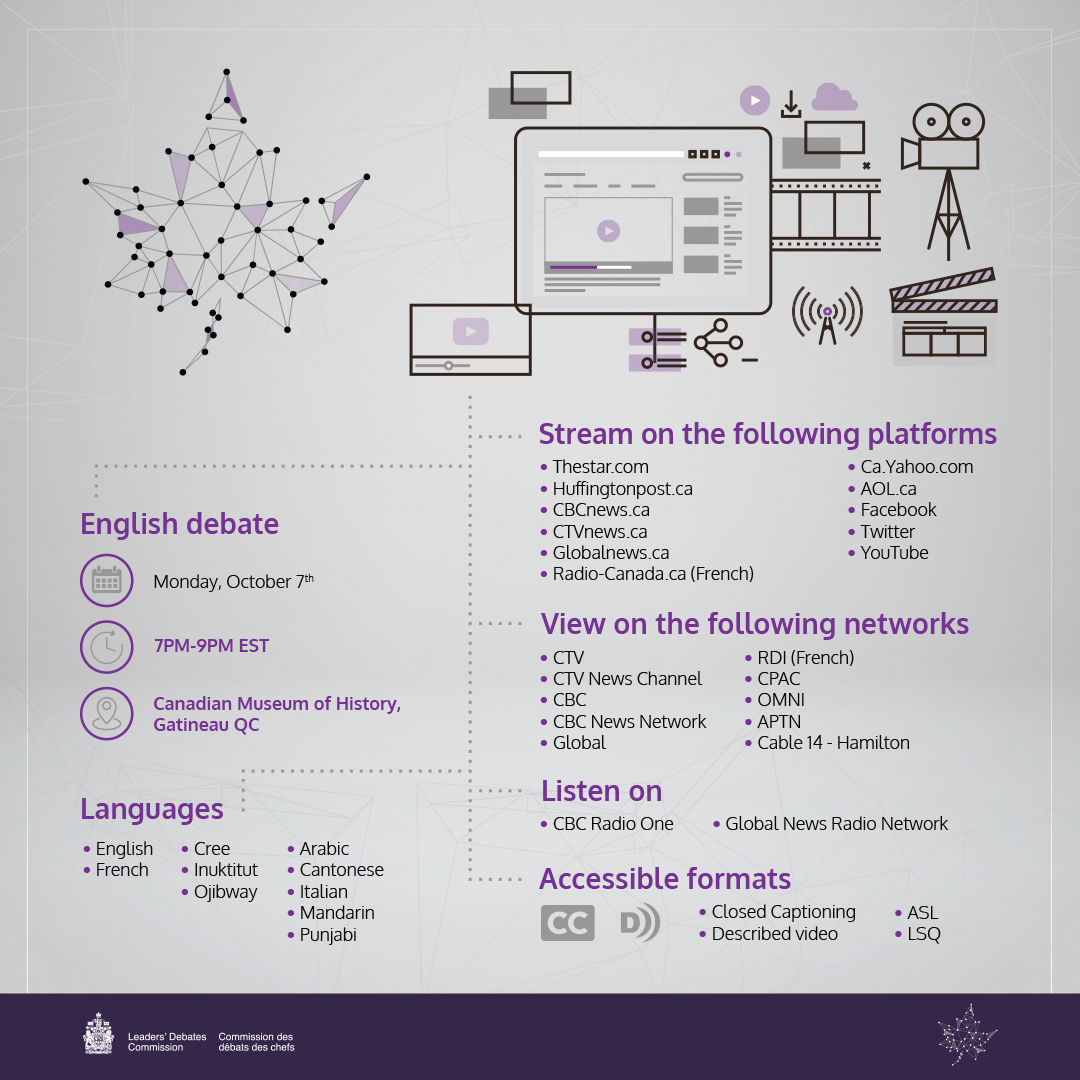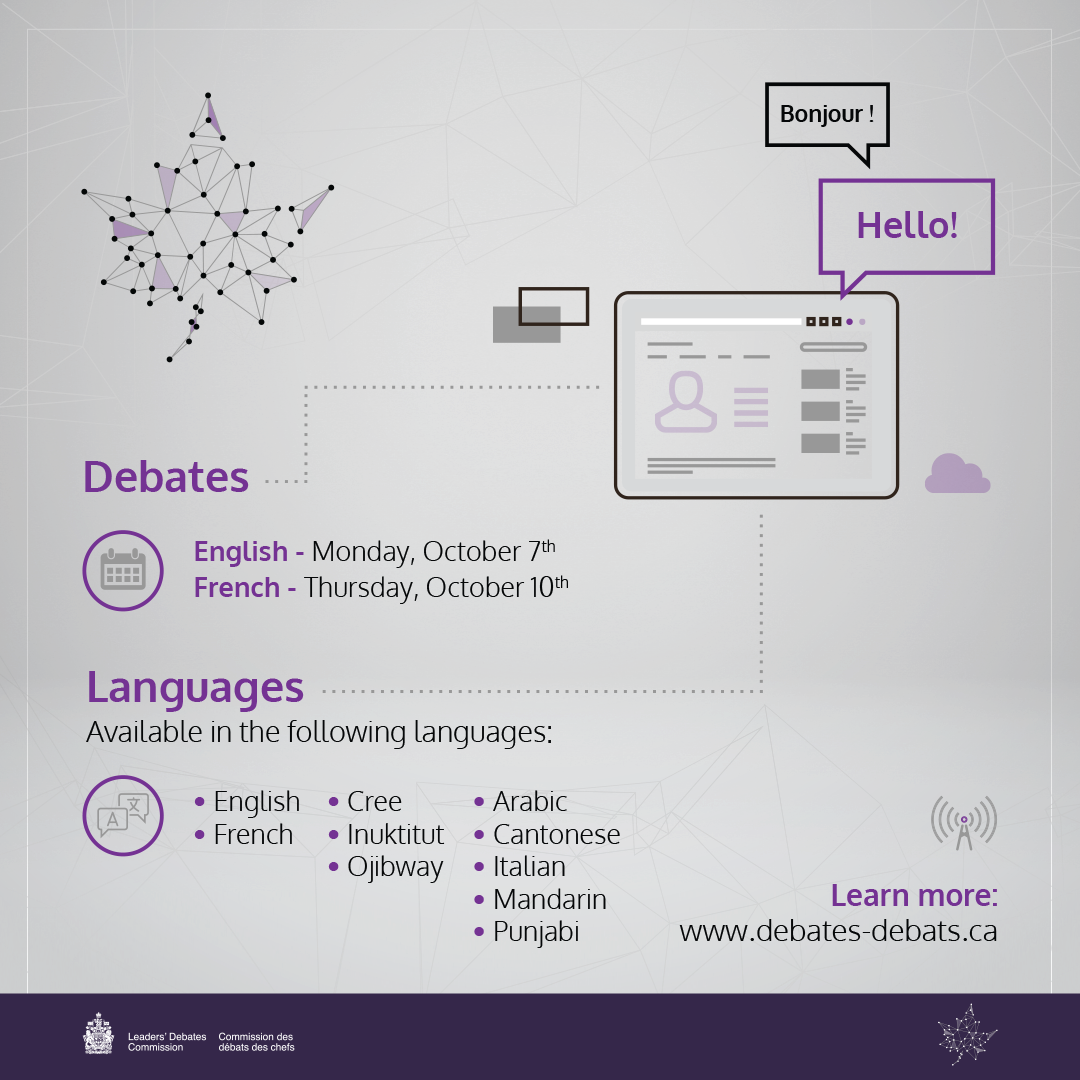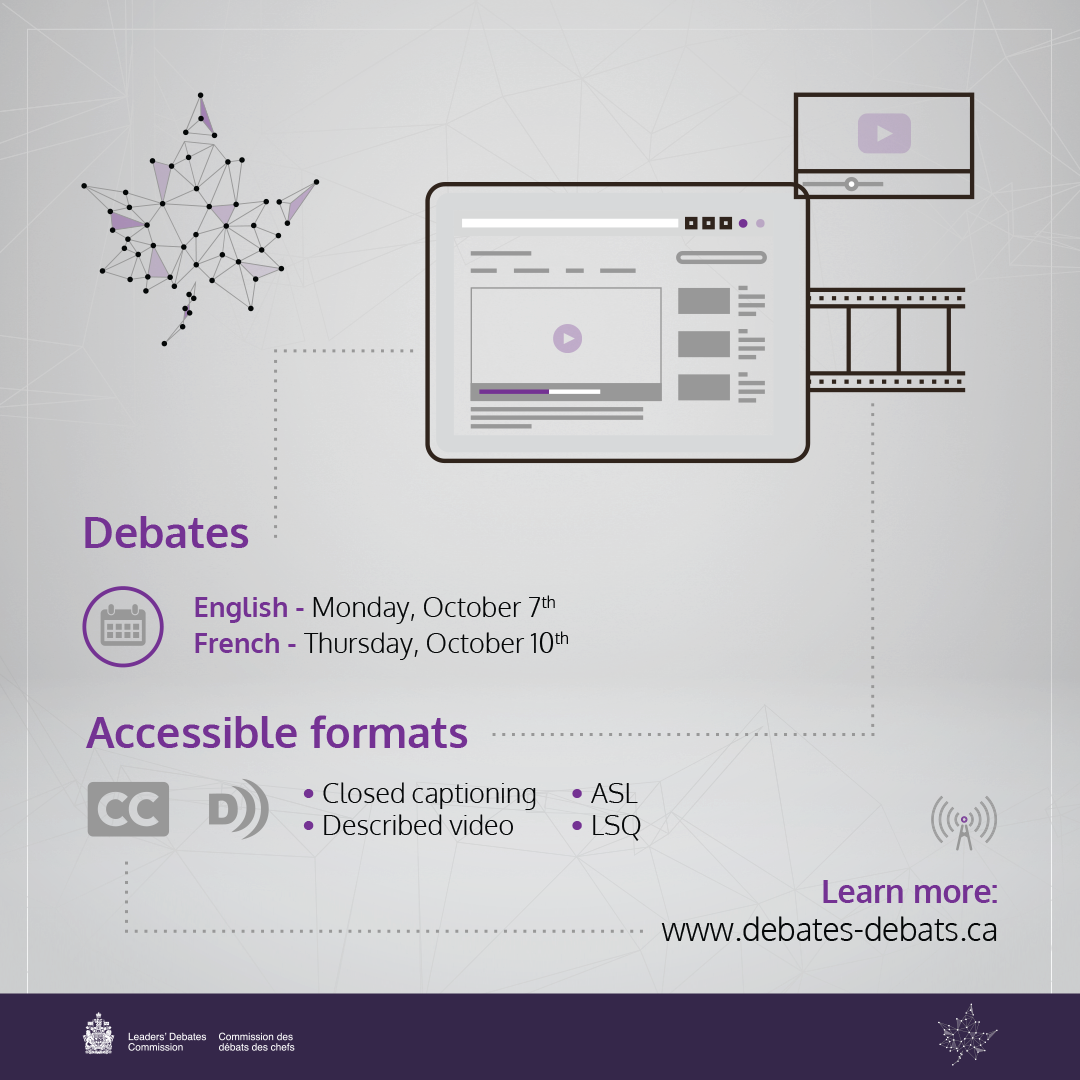In parliamentary democracies such as Canada, where voters do not directly elect the Prime Minister, election debates serve as an occasion for party leaders to increase their party’s chance at electoral success. In presidential democracies, such as the United States, election debates serve as an opportunity for candidates to argue that they deserve voters’ support. In both cases debates are an important part of electoral campaigns.
While debates around the world are united by some common goals, they also differ significantly in their structure and organization. Debate sponsoring organizations (which organize the debate) may be constituted of a single organization or a coalition of non-governmental organizations, election authorities, broadcast regulation bodies, or media associations. However, no matter their makeup, they must be impartial and independent, and have a reputation for credibility that ensures continued support for debates by candidates, the public, and the media.
Debate sponsors often rely on a set of pre-determined criteria to decide on which candidates to invite to a debate, such as:
- evidence of public support, determined from levels of popular support in surveys, a chance of forming government, or a percentage of electoral support in the previous election that allows it to maintain its status as an established party
- an organized and active political force, determined by the candidate’s party having an established internal structure and seats in the legislature
- legal eligibility to run for office
- a non-violence or governance pledge.
Even if such criteria are not explicitly used, debate sponsoring organizations and political parties often invoke them during the process of negotiating who can participate.
Australia
Individual news organizations organize debates in Australia. To date, only the leaders of the Labour and Liberal parties have ever participated in leaders’ debates, despite small-scale electoral successes for other parties and calls to issue invitations to them. The number of debates in the election campaign fluctuates, with three debates held in the 1993, 2013, 2016, and 2019 elections and only one debate in the 1990, 1998, 2001, 2007, and 2010 elections. Legislation to create an independent debates commission failed to pass in 2013, although the leaders of the Labour and Liberal parties recently indicated support for the idea.
France
France has broadcast presidential debates since 1974 and there has been one at every presidential election except in 2002, when incumbent president Jacques Chirac refused to debate the Front National’s Jean-Marie Le Pen. The national broadcast regulator has a mandate to ensure that election debates allocate time to candidates equally during certain periods of the campaign, in accordance with laws governing French election coverage. Because France uses a two-round system for electing a president, in which a wider field of candidates is reduced to a final vote between two candidates, debates have traditionally only been held prior to the final round. This makes it clear who is eligible to participate and makes it easy to divide speaking time equally. However, the 2017 election introduced a first-round debate featuring the five candidates who ranked highest in the polls at the time.
Germany
Two-candidate TV debates in Germany started in 2002 in a format called TV-Duelle, and only the leaders of the two major parties—the Christian Democratic Unions and the Social Democratic Party— have ever been invited. Inclusion in the TV-Duelle is based on tests measuring former, present, and probable future electoral success of the party. In 2013, an Elephantenrunden (elephant-round) debate, which invites leaders of all parties holding a seat in the Bundestag, was added alongside the TV-Duelle, although the leaders of the two major parties sent a senior representative instead.
Jamaica
The Jamaica Debates Commission stages national and local political debates. It was formed in 2002 as a partnership between the Jamaica Chamber of Commerce and the Media Association of Jamaica and it has applied to be recognized as an official charity. The Commission has organised three debates each year for national elections in 2002, 2007, and 2011: one on social issues, one on economic issues, and a final debate between the leaders.
The broadcasts of the debate are fully funded by the private sector; there is no government support. All the debates have included two parties, but other parties may join provided they have a written constitution and have received either more than 10% of the votes cast in the previous election or have 15% of support in a recognized national public opinion poll.
Spain
Televised debates between candidates of the two major parties returned to the Spanish political scene for the first time since 1993 in 2008. They were hosted by the Academy of Television and broadcast by public and private television stations. In the 2015 election campaign, there were four debates – two organized by major television stations, one organized by the newspaper El Pais, and one organized by a student group at a university – although the Prime Minister only agreed to participate in one of the television debates. While media companies are primarily responsible for organizing debates, Spain’s electoral commission has the capacity to determine who is allowed to participate. Despite an invitation from the broadcaster Atresmedia, the electoral commission stated that the leader of the Vox party would not be allowed to participate in a televised debate “since it does not hold any seats in the national parliament and attracted a very small percentage of the vote in the last general election.”
Mexico
Mexico requires that two debates are held for presidential elections, although candidates are not required to participate. Debates are generally organized by the National Electoral Institute (formerly the Federal Electoral Institute), which is the independent government body responsible for organizing federal elections. The Institute negotiates with individual networks and media outlets to arrange for the debates’ broadcast, which the networks could access for free. Debates are also transmitted online, including streaming on Facebook Live. The format of the debates has varied in response to criticisms and other entities, such as the student-movement Yosoy132, have also organized debates in the past.
Trinidad and Tobago
The Trinidad and Tobago Debates Commission was created by the Chamber of Industry and Commerce in 2010 as an independent and autonomous organisation charged with organising electoral debates and with making debating an established part of the democratic process. To participate, a party must run candidates for at least 50% of the available seats or have 12.5% support in recent polls.
The Commission has no legal standing and relies on no government support (Kumar 2018). Without such status and without strong media partnerships, the Commission has not succeeded in organizing a national leaders’ debate, although it has organized various local and provincial leaders’ debates. The cost of organising and broadcasting debates is borne by businesses in Trinidad and Tobago and public supporters.
United Kingdom
The United Kingdom is a recent adopter of the televised campaign debate. In 2010, the party leaders for Labour, Conservatives, and Liberal Democrats debated on three separate occasions in the UK’s first televised debates. Given the UK’s ban on political advertising on television, debates are an important way for candidates to make their platform and themselves known to viewers. The 2015 election’s debate format included many smaller debates – including one between only the leaders of parties who were not currently in government – but there would only be one principal television debate including all seven major parties. In the UK, debates are viewed as a private arrangement between broadcasters and political parties, leading to considerable negotiation around participation.
United States
Debates are organized by the Commission on Presidential Debates, which initially negotiated with Presidential candidates and their parties regarding the timing, format, and moderators of the debates. Since 2004 the Commission has not allowed candidates to negotiate these features. Candidates are invited to participate if they are on the ballot in enough states to potentially win the election and have more than 15% support in a set of five national polls.
Conclusion
Televised electoral debates in democracies around the world share the common attribute of being broadcasted to the electorate with the goal of getting to know the candidates better. However, they differ in the nature of the debate sponsors, the format of the debates, the candidates invited, and the place of the debate within the election campaign.




